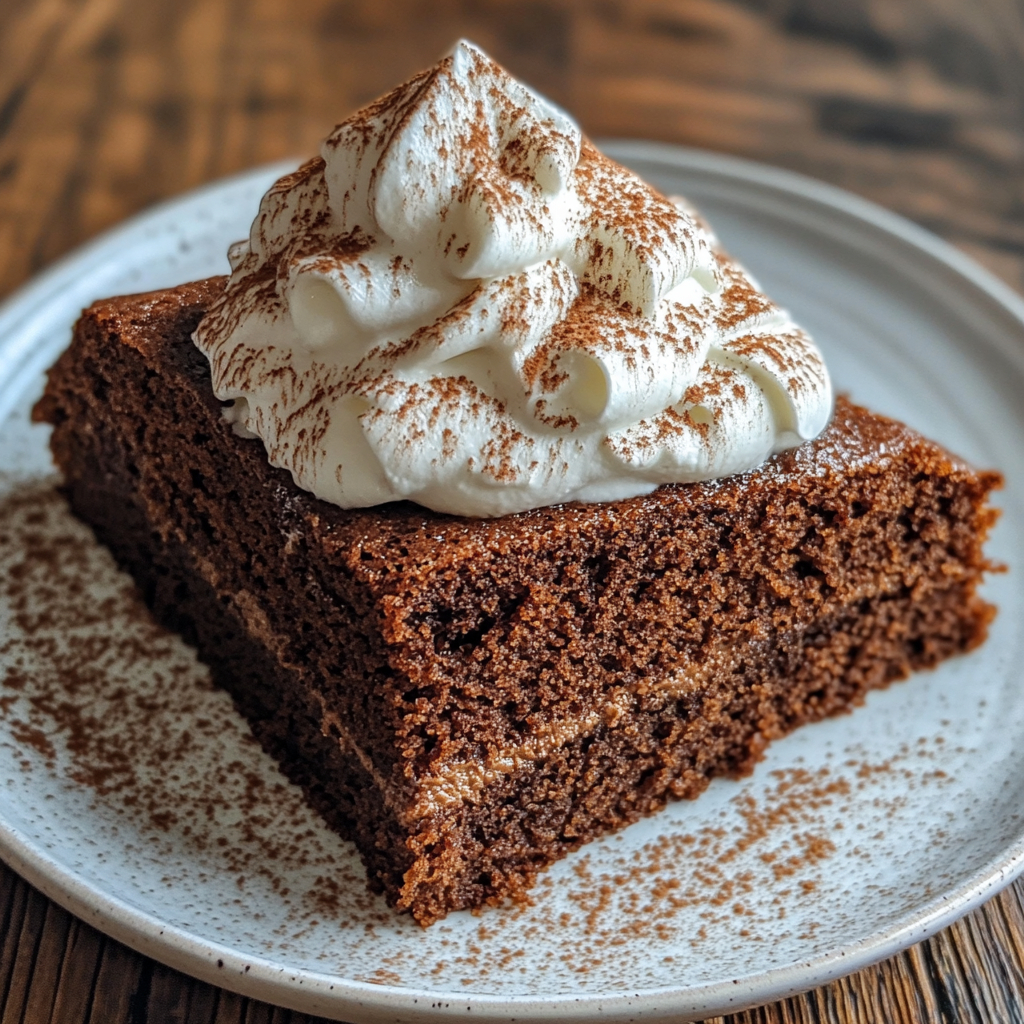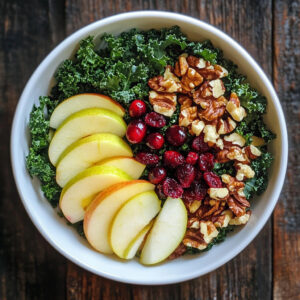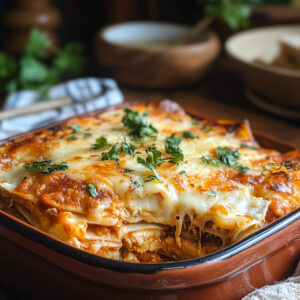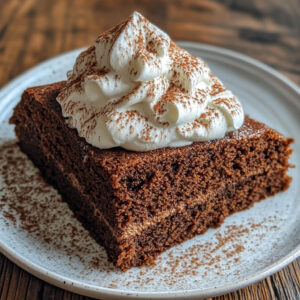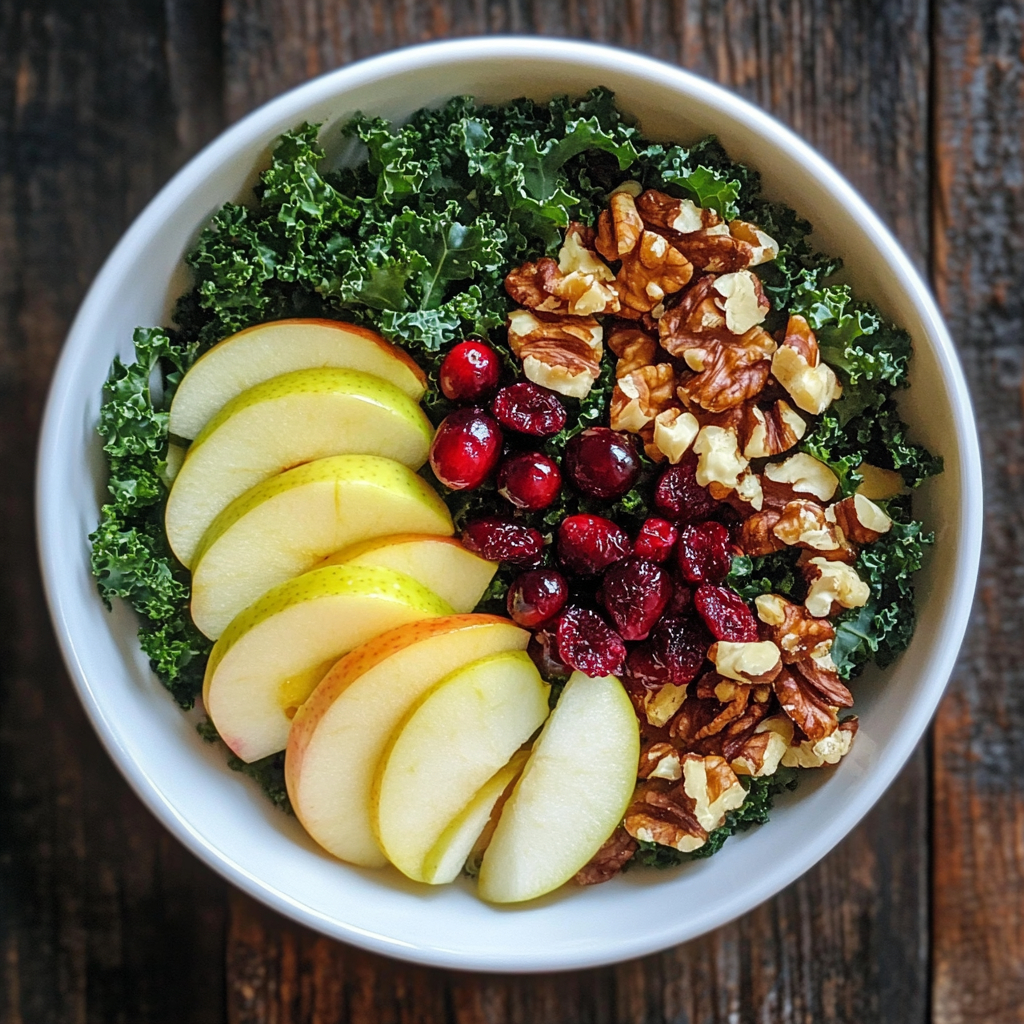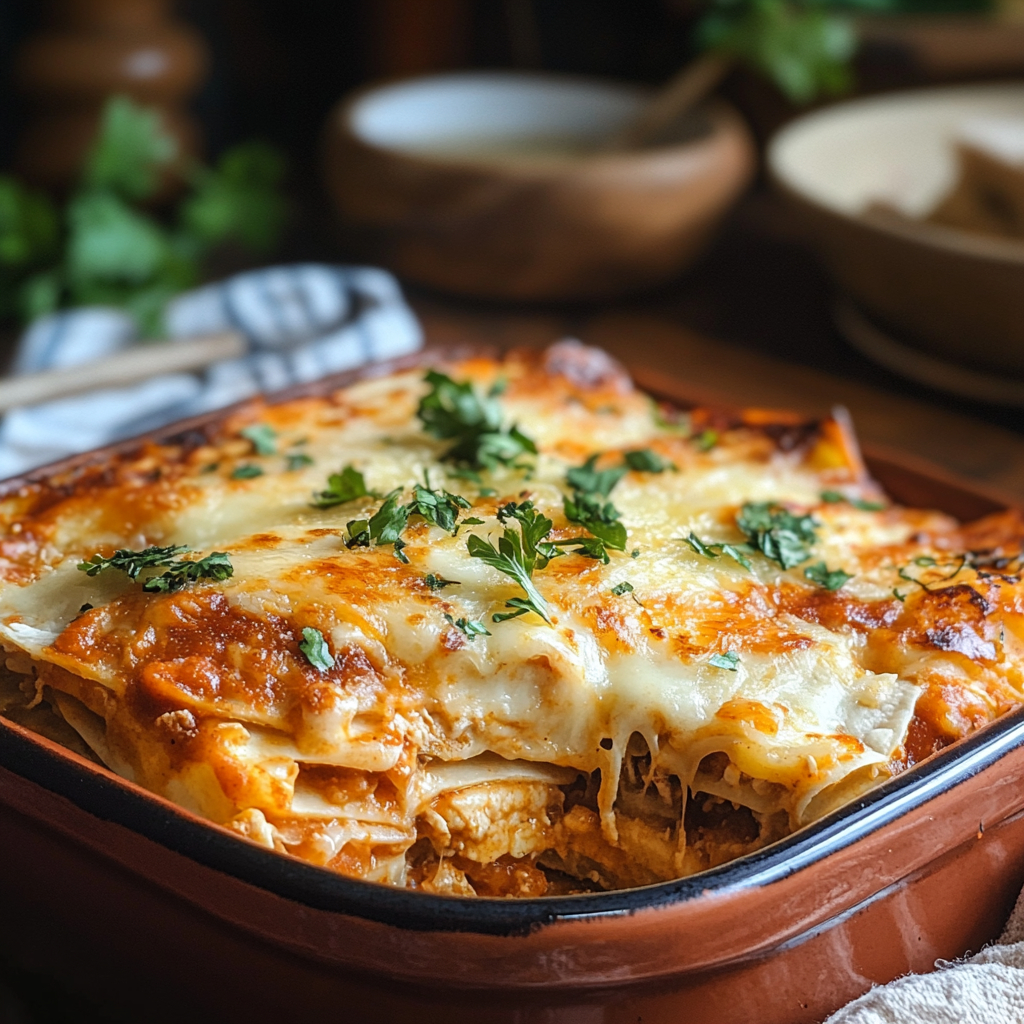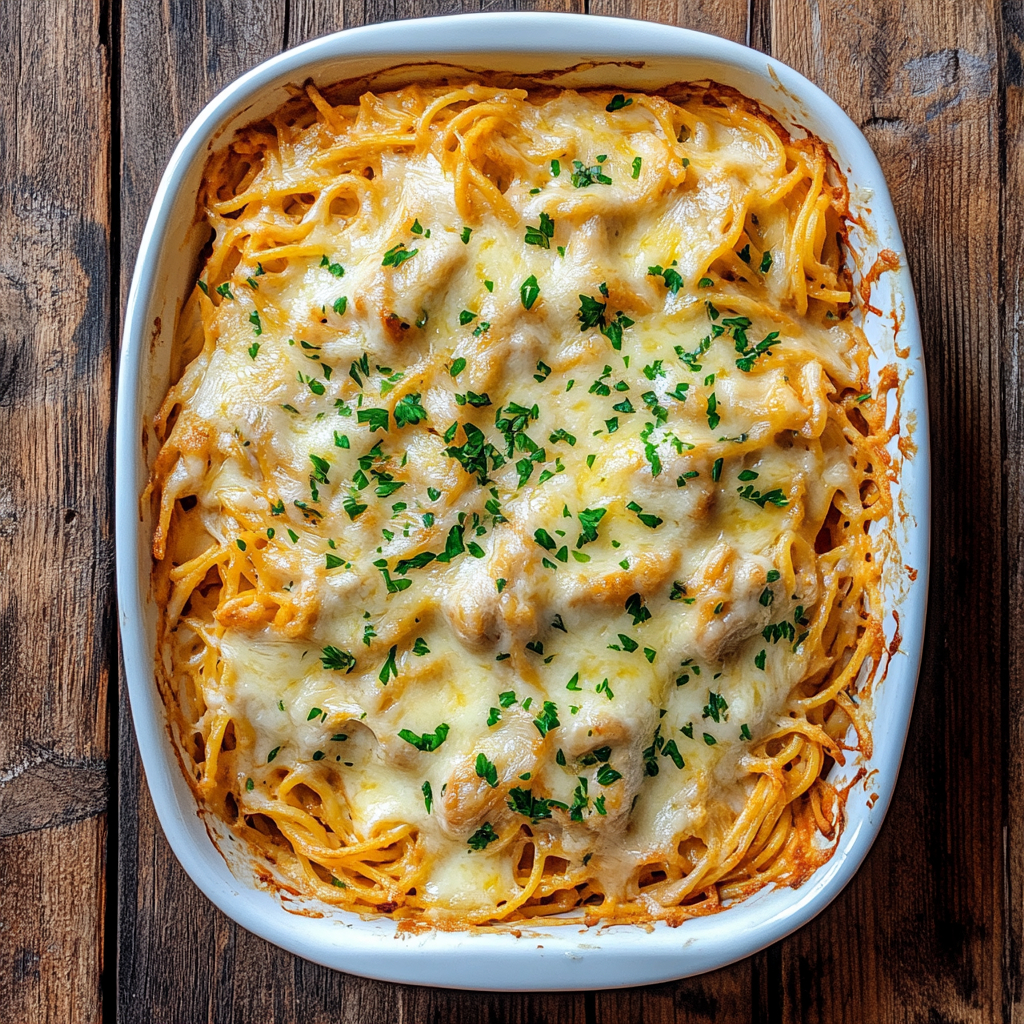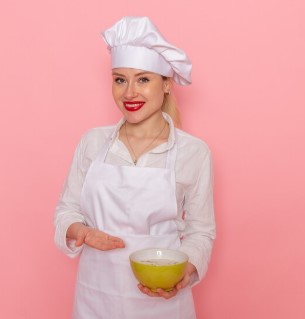If you’re looking for a dessert that’s warm, nostalgic, and packed with deep flavor, the best molasses cake is your answer. With every bite, you’ll taste rich notes of caramel, ginger, and cinnamon wrapped in an unbelievably moist crumb. This is the kind of cake that feels right at home during the holidays but is just as satisfying on a rainy day with a cup of tea.
What makes it stand out isn’t just the flavor—it’s the texture. Thanks to the magic of molasses, this cake stays soft for days, develops an even deeper flavor over time, and fills your kitchen with a cozy aroma as it bakes.
In this article, we’ll walk you through everything you need to make the best molasses cake from scratch, from choosing the right molasses to mastering the moist, tender crumb bakeries are known for.
Table Of Content
Table of Contents
What Is Molasses Cake and Why It’s a Timeless Favorite
The Origin of Molasses Cake
This old-fashioned classic traces back to a time when molasses was more accessible than refined sugar. From colonial America to vintage European kitchens, bakers relied on its bold flavor and natural sweetness to elevate simple cakes.
Today, it’s still cherished for the same reasons—deep flavor, soft texture, and timeless appeal. A slice of the best molasses cake feels both old-world and comforting, especially when served warm with a dollop of cream.
What Makes It So Distinctively Rich and Moist
The key lies in the combination of robust molasses, warm spices, and moisture-locking ingredients like brown sugar and buttermilk. The result is a cake that’s tender, never dry, and packed with bold yet balanced flavor.
Key Ingredients in the Best Molasses Cake
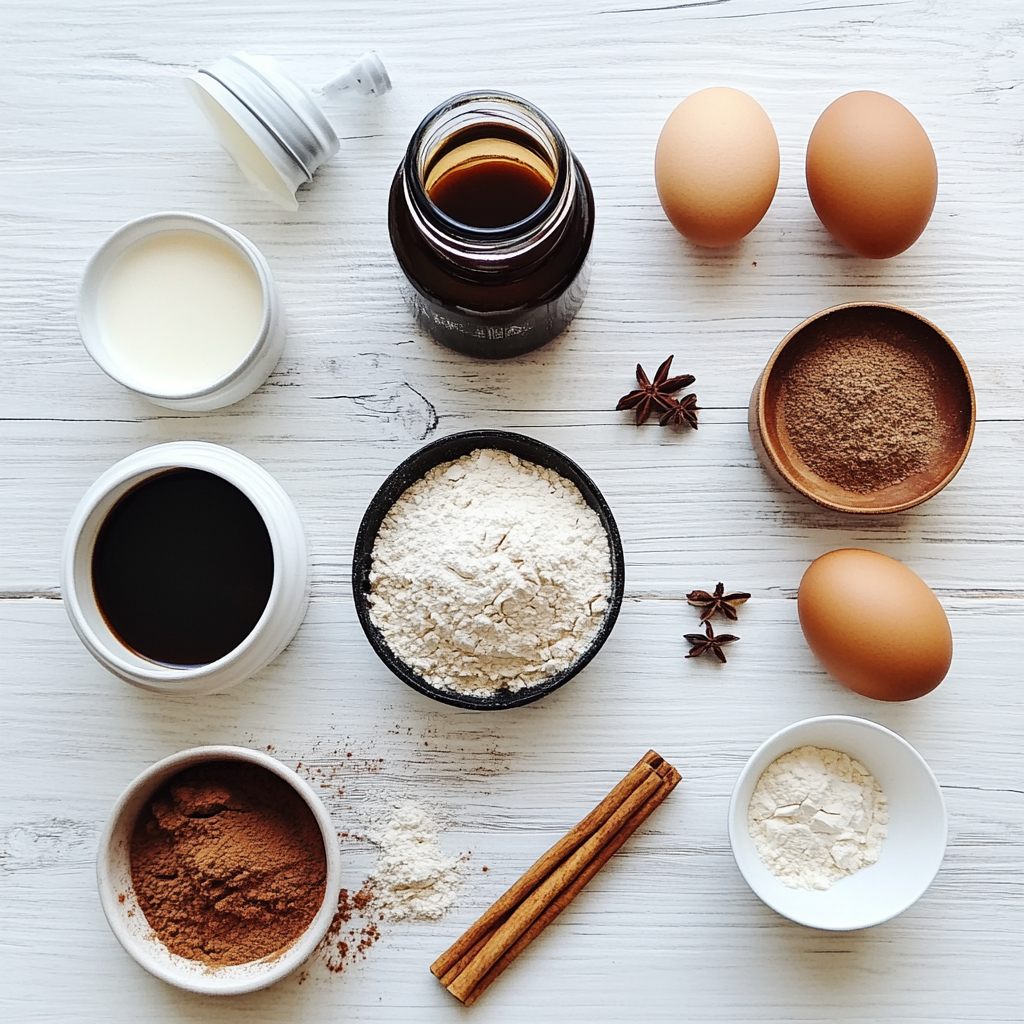
Essential Pantry Ingredients You’ll Need
The best molasses cake doesn’t rely on complicated techniques or hard-to-find ingredients. Instead, it shines with a short list of pantry staples—each contributing something unique to the cake’s deep flavor and soft, dense crumb.
Here’s what you’ll need for a classic version:
- All-purpose flour – The base of your batter. You can also use part whole wheat flour for a nuttier flavor.
- Baking soda or baking powder – Helps the cake rise and stay fluffy.
- Brown sugar – Enhances the molasses and provides rich sweetness.
- Eggs – Bind the batter and add structure.
- Buttermilk or sour cream – Adds tang and helps keep the crumb moist.
- Vegetable oil or butter – Oil adds more moisture, while butter adds flavor.
- Spices – Ground ginger, cinnamon, nutmeg, and cloves give this cake its signature warmth.
- Salt – Balances the sweetness and deepens the flavors.
And of course, the star of the show:
- Molasses – The heart of the recipe. It brings sweetness, moisture, and that unmistakable dark flavor and color.
Which Molasses Is Best for Baking? (And Why It Matters)
Choosing the right molasses can make or break the outcome of your cake. For the best molasses cake, always use unsulphured light or dark molasses.
Here’s a quick guide:
| Type of Molasses | Flavor Profile | Best For |
|---|---|---|
| Light | Mild, sweet | Cakes that need subtle molasses notes |
| Dark | Rich, robust, slightly bitter | Traditional spice and gingerbread cakes |
| Blackstrap | Very bitter, intense | Not recommended for cakes |
Dark molasses is usually the top choice for baking molasses cake. It brings the ideal balance of sweet and bold, and it pairs beautifully with spices.
Avoid blackstrap molasses unless you’re specifically following a recipe that calls for it—it can overpower the other flavors and make the cake taste too bitter.
When paired with the right spices and softeners, molasses becomes the backbone of the best molasses cake, giving it depth, color, and that nostalgic bakery-style aroma you can’t resist.
Step-by-Step Recipe for the Perfect Molasses Cake
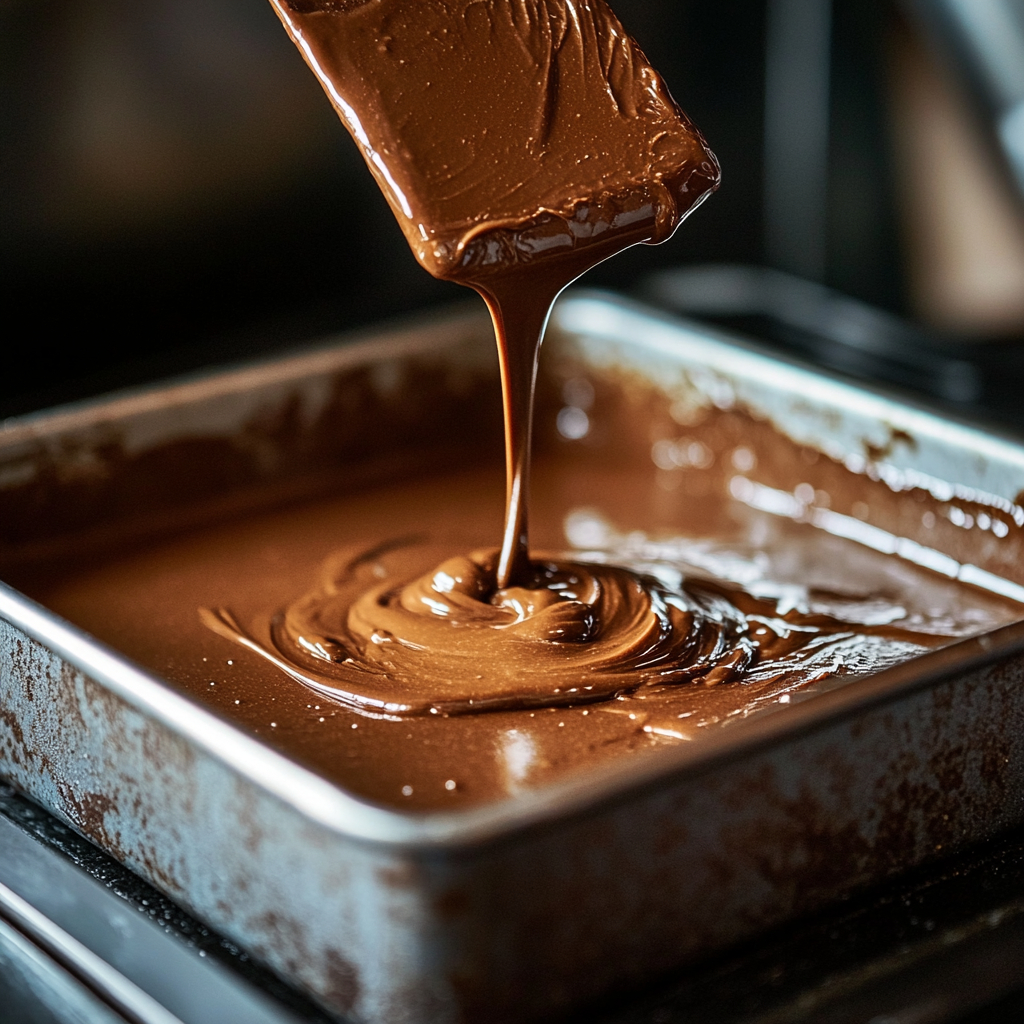
Preparing the Batter with the Right Technique
To make the best molasses cake, you don’t need any fancy equipment—just a couple of bowls, a whisk or hand mixer, and a lined or greased cake pan. Here’s how to do it right from start to finish.
Step 1: Preheat and Prep
- Preheat your oven to 350°F (175°C).
- Grease a 9×9-inch square pan or line it with parchment paper. You can also use a loaf pan for a denser texture.
Step 2: Mix the Dry Ingredients
- In a medium bowl, whisk together:
- 2 cups all-purpose flour
- 1 teaspoon baking soda
- ½ teaspoon salt
- 1 teaspoon cinnamon
- 1 teaspoon ground ginger
- ¼ teaspoon nutmeg
- ¼ teaspoon cloves
Step 3: Blend the Wet Ingredients
- In a large bowl, mix:
- ¾ cup vegetable oil (or melted butter)
- 1 cup brown sugar
- 1 egg
- 1 cup buttermilk (or sour cream + milk combo)
- ¾ cup molasses (preferably dark, unsulphured)
- 1 teaspoon vanilla extract
Step 4: Combine Wet and Dry
- Slowly stir the dry mixture into the wet ingredients until just combined. Don’t overmix—stop once the batter is smooth and thick.
Step 5: Pour and Bake
- Pour the batter into the prepared pan and spread evenly.
- Bake for 35–40 minutes, or until a toothpick inserted in the center comes out clean.
Step 6: Cool and Serve
- Let cool in the pan for 10–15 minutes before slicing.
- Serve warm or room temperature, topped with whipped cream, frosting, or a dusting of powdered sugar.
Baking Tips for a Moist, Even Crumb
To get that perfectly soft texture the best molasses cake is known for, follow these tips:
- Use room temperature ingredients – Especially eggs and buttermilk.
- Avoid overbaking – This cake can dry out quickly. Start checking for doneness at 35 minutes.
- Store in an airtight container – Keeps the cake moist for up to 3 days.
- Add a touch of coffee – Replacing a bit of buttermilk with brewed coffee can enhance the richness of the molasses.
Once baked, this cake holds its shape beautifully and cuts cleanly—ideal for gifting, holiday tables, or a comforting weeknight dessert.
The Role of Molasses in Cake Baking
Flavor, Color, and Moisture Explained
Molasses is more than just a sweetener—it’s the defining ingredient in the best molasses cake. It contributes to flavor complexity, adds natural moisture, and creates the cake’s signature deep brown color. Without molasses, this cake simply wouldn’t have the same bold identity.
Here’s what molasses does in your recipe:
- Adds Rich Flavor
Molasses has a bold, bittersweet taste that balances the sweetness of brown sugar. It introduces earthy, caramel-like notes that deepen during baking. - Creates Moisture
Its syrupy texture helps retain moisture, making your cake soft and tender for days after baking. - Intensifies Color
Molasses gives your batter a rich brown tone, which darkens as it bakes and adds a visually appealing finish. - Pairs Perfectly with Spice
Its flavor complements cinnamon, ginger, and cloves—boosting the warmth and depth of your spice blend.
How Molasses Affects Structure and Sweetness
Molasses contains some natural acidity, which reacts with baking soda to help your cake rise evenly. That’s why it’s often paired with baking soda rather than baking powder in older, traditional recipes.
Also, because molasses isn’t as sweet as white sugar, it helps balance the overall sweetness of the cake while delivering more character. It turns a basic spice cake into a rich, dark, and complex dessert worthy of being called the best molasses cake.
If you’ve ever wondered why this type of cake stays moist for so long, or how it gets that deep, nostalgic flavor—it all starts with the molasses.
Secrets Bakeries Use to Keep Cakes Extra Moist
The Science Behind Moisture Retention in Cakes
Ever wonder why bakery cakes stay soft and tender longer than homemade ones? It’s not magic—it’s method. The same techniques that professionals use can easily be applied to your own kitchen, especially when baking something like the best molasses cake.
Here’s what bakers know about keeping cakes moist:
- Fat is your friend
Cakes made with oil (instead of or in addition to butter) retain moisture better. Oil stays liquid at room temperature, keeping the crumb soft longer. - Don’t overmix
Overmixing leads to tough texture. Once your dry ingredients are incorporated into the wet, stop mixing. - Use brown sugar
Brown sugar contains molasses, which helps retain moisture. It also brings a deeper flavor that works beautifully in spice-based cakes. - Add buttermilk or sour cream
These ingredients add fat and acidity, which tenderize the crumb and help activate baking soda for a perfect rise. - Wrap and store properly
Once the cake cools, wrap it tightly in plastic wrap to seal in moisture. Store at room temperature in an airtight container for up to 3 days—or refrigerate for longer shelf life.
Techniques You Can Use at Home
Here’s a checklist of bakery-level techniques that you can apply when making your best molasses cake:
| Tip | Why It Works |
|---|---|
| Use oil or a mix of oil + butter | Keeps crumb tender and moist |
| Replace some liquid with buttermilk | Enhances texture and depth of flavor |
| Add a little applesauce or yogurt | Natural moisture boost without extra fat |
| Brush warm cake with simple syrup | Locks in moisture after baking |
| Don’t skip cooling time | Traps steam and moisture inside the cake |
When you combine these moisture-locking tricks with the natural richness of molasses, the result is a cake that tastes just as amazing on day three as it did when it came out of the oven.
By mastering these simple adjustments, you’re well on your way to baking the best molasses cake your friends and family will ask for again and again.
Choosing the Right Molasses for Different Cake Styles
Light vs. Dark vs. Blackstrap – What’s the Difference?
Not all molasses is the same. The type you choose directly affects the flavor, sweetness, and moisture of your cake. To make the best molasses cake, you need to know which type works best and why.
Here’s a quick breakdown:
| Type | Color & Flavor | Best For |
|---|---|---|
| Light Molasses | Pale brown, sweet, mild | Subtle spice cakes, muffins, cookies |
| Dark Molasses | Rich brown, bold flavor | Classic molasses cake, gingerbread |
| Blackstrap | Very dark, bitter, low in sugar | Not recommended for sweet baked goods |
Light molasses is made from the first boiling of sugar cane or sugar beet juice. It’s sweet and mild, ideal for baked goods where you want only a hint of molasses.
Dark molasses comes from the second boiling and is thicker, more flavorful, and less sweet. It’s the preferred type for baking rich cakes and traditional holiday desserts.
Blackstrap molasses is from the third boiling. While it’s nutrient-dense, it’s also very bitter and too strong for most cakes—it can overpower the delicate balance of spices and sweetness.
Best Molasses for Gingerbread and Holiday Cakes
If you’re making gingerbread, spice cakes, or rich holiday loaves, dark unsulphured molasses is the gold standard. It brings out the full-bodied warmth of cinnamon, ginger, and cloves—creating a bold and satisfying dessert.
For the best molasses cake, dark molasses gives the perfect depth without overwhelming the palate. It also contributes to the cake’s deep brown color and soft crumb, making every slice bakery-worthy.
Pro tip: Always choose unsulphured molasses for baking. It’s more natural, with no chemical preservatives or sulfur dioxide.
By choosing the right type of molasses, you’re setting your cake up for maximum flavor and texture—two things every best molasses cake absolutely needs.
Variations to Try – Gingerbread, Vegan, and More
Turning Your Molasses Cake into Gingerbread or Cupcakes
The best molasses cake is incredibly versatile. With just a few tweaks, you can turn it into cozy holiday gingerbread, individual cupcakes, or even loaf cakes for gifting.
To make it more like classic gingerbread:
- Add 2–3 teaspoons of ground ginger for a stronger spice punch.
- Increase cinnamon and cloves slightly.
- Add a tablespoon of molasses-based dark brown sugar for extra depth.
- Serve with lemon glaze or vanilla icing for contrast.
To make cupcakes:
- Prepare the same batter and pour into lined muffin tins.
- Fill each about 2/3 full.
- Bake at 350°F for 18–20 minutes.
- Top with cinnamon buttercream or cream cheese frosting for bakery-style presentation.
Other fun formats:
- Mini bundt cakes
- Molasses loaf cake with orange glaze
- Layered cake with spiced whipped frosting
Each variation retains the richness and warmth that defines the best molasses cake, while offering something new for different occasions.
Simple Swaps for Egg-Free and Dairy-Free Options
Don’t let dietary restrictions stop you from enjoying a comforting slice. Molasses cake is easily adapted to be vegan or allergy-friendly.
For a vegan version:
- Replace eggs with flax eggs (1 tbsp ground flax + 2.5 tbsp water = 1 egg).
- Use plant-based milk (like oat or almond) with a splash of vinegar for buttermilk.
- Swap butter with neutral oil or vegan butter.
For dairy-free:
- Use coconut milk or soy milk in place of buttermilk.
- Choose dairy-free frosting or simply top with powdered sugar.
For low-sugar or whole grain versions:
- Sub part of the flour with whole wheat pastry flour.
- Use unsweetened applesauce for part of the oil or sugar.
Each version still captures the moist crumb, warm spice, and rich flavor that make the best molasses cake a staple—just tailored to your needs.
Serving and Storage Tips
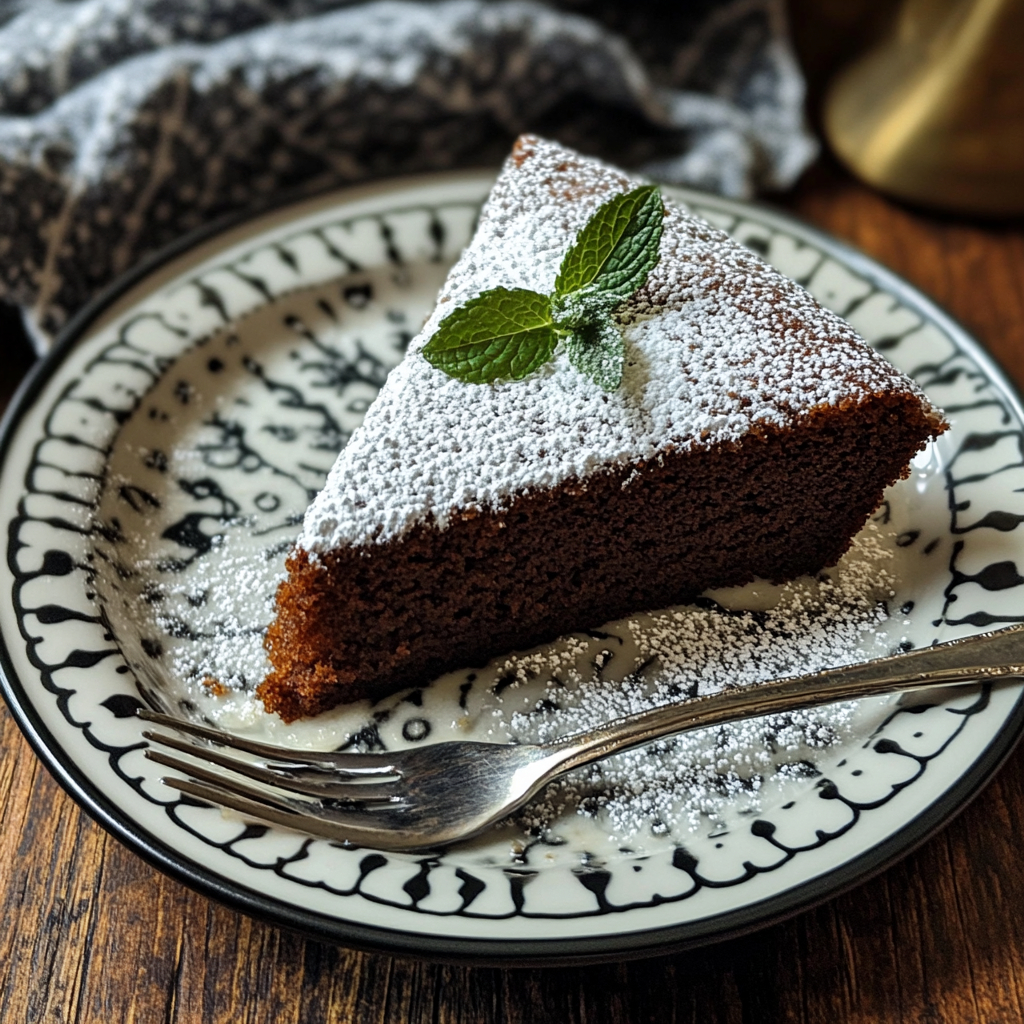
How to Slice and Serve for Maximum Flavor
The beauty of the best molasses cake is that it tastes even better the next day. Its deep flavor and moist texture continue to develop after baking, so knowing how to slice and serve it properly will only enhance your experience.
Serving tips:
- Cool completely before slicing—this allows the crumb to set for cleaner cuts.
- Use a serrated knife for perfect slices, especially if the cake is dense or loaf-style.
- Serve warm or at room temperature—both are excellent. Warm slices pair beautifully with whipped cream or vanilla ice cream.
Delicious topping ideas:
- A simple dusting of powdered sugar
- Cream cheese or vanilla glaze drizzle
- Dollop of whipped cream or Greek yogurt with honey
- A sprinkle of candied ginger or orange zest for visual appeal
Whether it’s plated individually or served straight from the pan, a well-sliced piece of the best molasses cake is as comforting as it is elegant.
Freezing and Make-Ahead Instructions
One reason bakers love this cake is because it stores and freezes incredibly well. You can easily make it days ahead, which is perfect for holidays or meal prepping.
To store:
- Wrap tightly in plastic wrap or foil, or place in an airtight container.
- Keep at room temperature for up to 3 days.
- For longer storage, refrigerate for up to 5–6 days.
To freeze:
- Wrap individual slices or the whole cake tightly in two layers (plastic + foil).
- Store in freezer-safe bags for up to 2 months.
- Thaw overnight in the fridge or at room temperature for a few hours.
Reheating tip:
Warm slices in the microwave for 10–15 seconds or in a 300°F oven for 5–10 minutes to revive that just-baked feel.
Proper storage ensures that every slice of your best molasses cake stays moist, flavorful, and irresistible—just like day one.
Common Mistakes to Avoid with Molasses Cake
Dense Texture, Overbaking, and Uneven Rise
Even simple recipes can go sideways if you’re not careful with the details. To ensure you’re always baking the best molasses cake, avoid these common pitfalls:
Mistake 1: Overmixing the Batter
When you mix too much after combining the wet and dry ingredients, you develop excess gluten, which can lead to a tough or dense cake.
✔️ Fix: Stir until just combined. A few small lumps are okay.
Mistake 2: Using the Wrong Type of Molasses
Blackstrap molasses is too bitter and strong for most cake recipes.
✔️ Fix: Always use dark unsulphured molasses for the best flavor.
Mistake 3: Skipping Buttermilk or Acidic Ingredients
Buttermilk or a similar acidic ingredient (like sour cream or yogurt) activates baking soda and softens the crumb.
✔️ Fix: Don’t skip it—if needed, add 1 tablespoon of vinegar or lemon juice to milk as a substitute.
Mistake 4: Overbaking the Cake
Molasses cake can dry out quickly if left in the oven too long.
✔️ Fix: Check your cake at the 30-minute mark. A toothpick should come out with a few moist crumbs—not totally dry.
Mistake 5: Not Letting the Cake Rest
Cutting the cake too soon can cause it to fall apart or lose moisture.
✔️ Fix: Let the cake rest in the pan for 10–15 minutes, then cool on a wire rack before slicing.
Fixes for Sticky Tops or Sunken Centers
If your cake sinks in the middle or develops a sticky top, it could be due to:
- Underbaking – The center hasn’t set fully.
- Too much moisture – Extra molasses, oil, or not enough flour can lead to collapse.
- Incorrect oven temperature – Baking too low or opening the oven door early causes dips.
To prevent this:
- Use an oven thermometer for accurate heat.
- Don’t open the oven door during the first 25 minutes.
- Measure all ingredients carefully—especially liquids.
By avoiding these mistakes, your best molasses cake will turn out tender, balanced, and bakery-worthy every single time.
Frequently Asked Questions
What does molasses do to cakes?
Molasses adds much more than just sweetness—it brings moisture, depth, and richness. In the best molasses cake, it helps create a dense but tender crumb, dark color, and warm, bittersweet flavor. It also reacts with baking soda to create lift and enhance texture.
How do bakeries get their cakes so moist?
Bakeries rely on precise technique and smart ingredients to lock in moisture. For molasses cake, they often use oil instead of butter, add buttermilk or yogurt, and wrap the cake as soon as it cools to trap steam. All of these tips help create the kind of moist texture you expect from the best molasses cake.
Which molasses is best for baking?
The best molasses for baking is unsulphured dark molasses. It strikes the perfect balance between sweetness and bold flavor. Light molasses is milder and less robust, while blackstrap molasses is too bitter for most cakes. For the richest, most flavorful result, dark molasses is ideal in the best molasses cake.
What is the best molasses for gingerbread?
For gingerbread and other spiced holiday cakes, dark unsulphured molasses is the go-to. It holds up beautifully to spices like cinnamon, ginger, and cloves without overpowering them. It’s also the same molasses used in traditional recipes for the best molasses cake and gingerbread loaf.
Conclusion
If you’re craving something richly spiced, deeply moist, and full of comfort, the best molasses cake is the dessert you need in your life. With its dark, caramelized flavor, tender crumb, and endless serving options—from cupcakes to loaves—it’s as versatile as it is delicious.
Whether you’re baking for a holiday table or just looking for a cozy afternoon treat, this cake never disappoints. And with tips for storage, customization, and bakery-level moisture, you’re now ready to bake it like a pro.
Don’t miss our Alton Brown Blueberry Buckle for another old-fashioned dessert that hits the sweet spot.
✅ Internal Links Used:
Print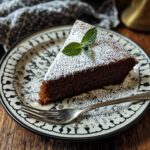
Best Molasses Cake – Moist, Rich, and Perfect for Every Season
- Total Time: 55 minutes
- Yield: 9 squares
- Diet: Vegetarian
Description
Rich, warmly spiced, and unbelievably moist, this Best Molasses Cake brings deep caramel flavor and a soft, tender crumb that only gets better with time. Perfect for holidays or cozy evenings with tea, it’s a vintage classic made easy for the modern baker.
Ingredients
- 2 cups all-purpose flour
- 1 tsp baking soda
- ½ tsp salt
- 1 tsp cinnamon
- 1 tsp ground ginger
- ¼ tsp nutmeg
- ¼ tsp ground cloves
- ¾ cup vegetable oil (or melted butter)
- 1 cup brown sugar
- 1 egg
- 1 cup buttermilk (or ½ cup sour cream + ½ cup milk)
- ¾ cup dark unsulphured molasses
- 1 tsp vanilla extract
Instructions
- Preheat oven to 350°F (175°C). Grease a 9×9-inch square pan or line with parchment paper.
- In a bowl, whisk flour, baking soda, salt, and spices.
- In a separate large bowl, mix oil, brown sugar, egg, buttermilk, molasses, and vanilla until smooth.
- Stir dry ingredients into wet until just combined—don’t overmix.
- Pour batter into the pan and smooth evenly.
- Bake for 35–40 minutes or until a toothpick comes out clean.
- Cool for 15 minutes in the pan. Serve warm or at room temperature.
Notes
Use dark molasses for best depth. Add a bit of coffee for extra richness, or top with lemon glaze or whipped cream for serving. Stores beautifully and gets better with time.
- Prep Time: 15 minutes
- Cook Time: 40 minutes
- Category: Dessert
- Method: Baking
- Cuisine: American
